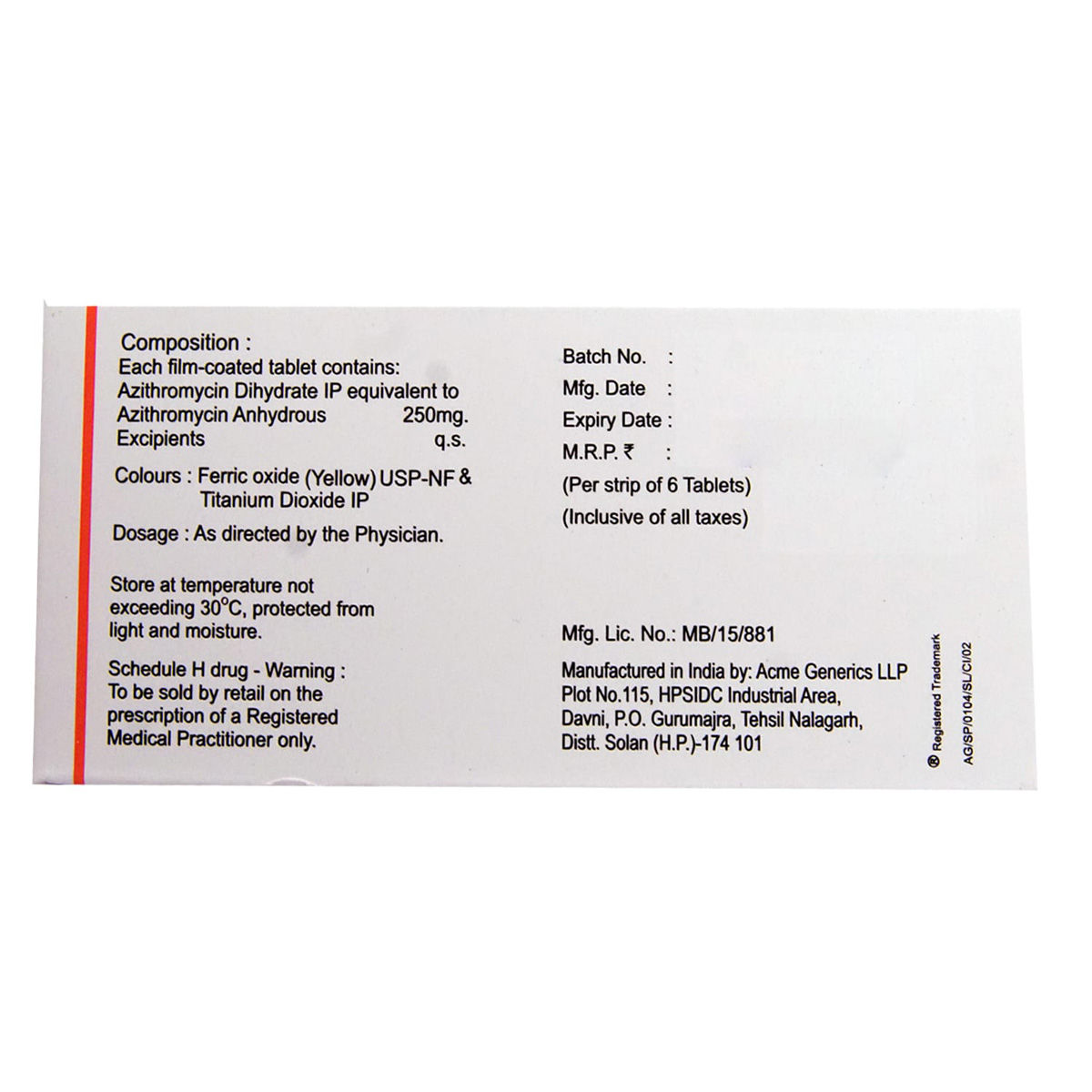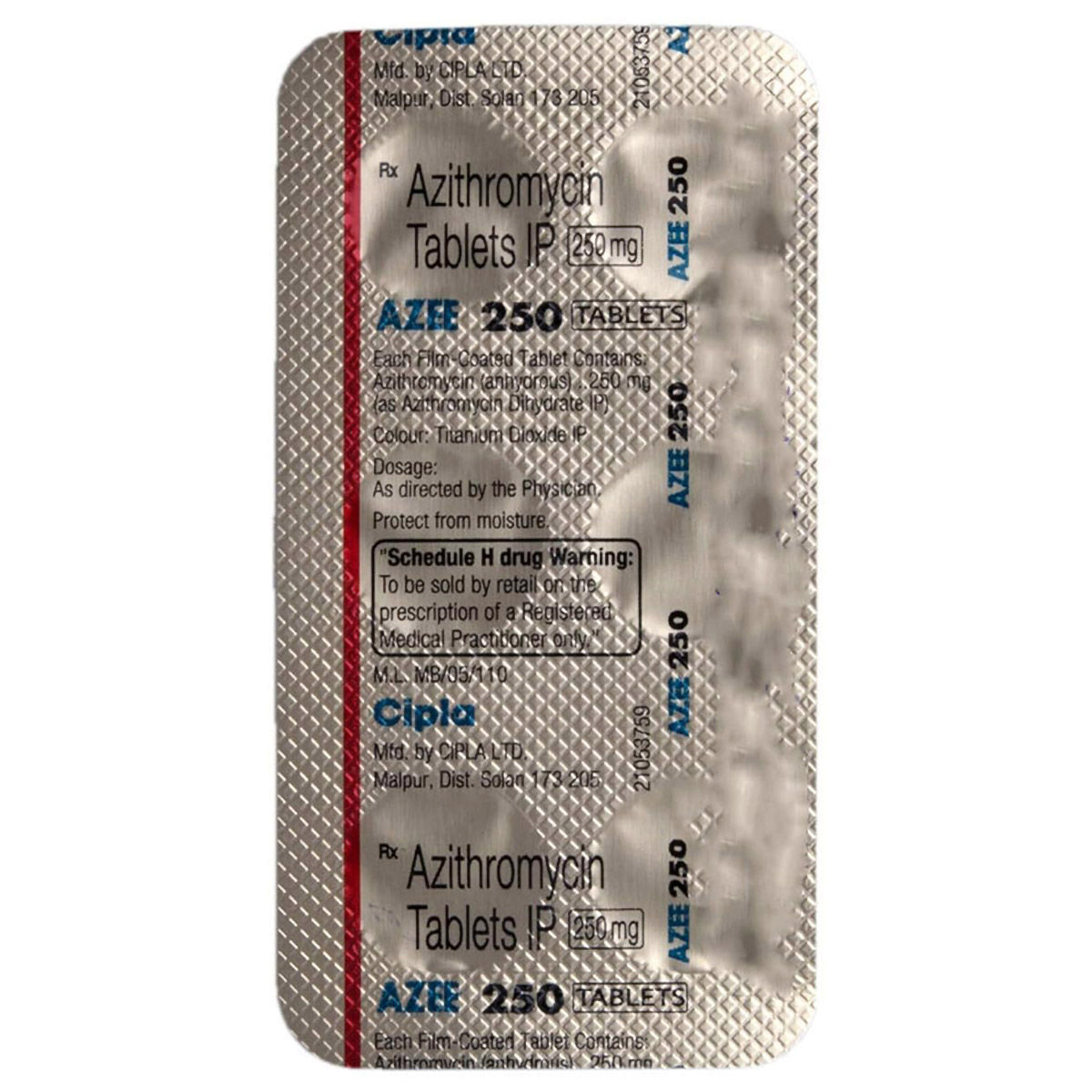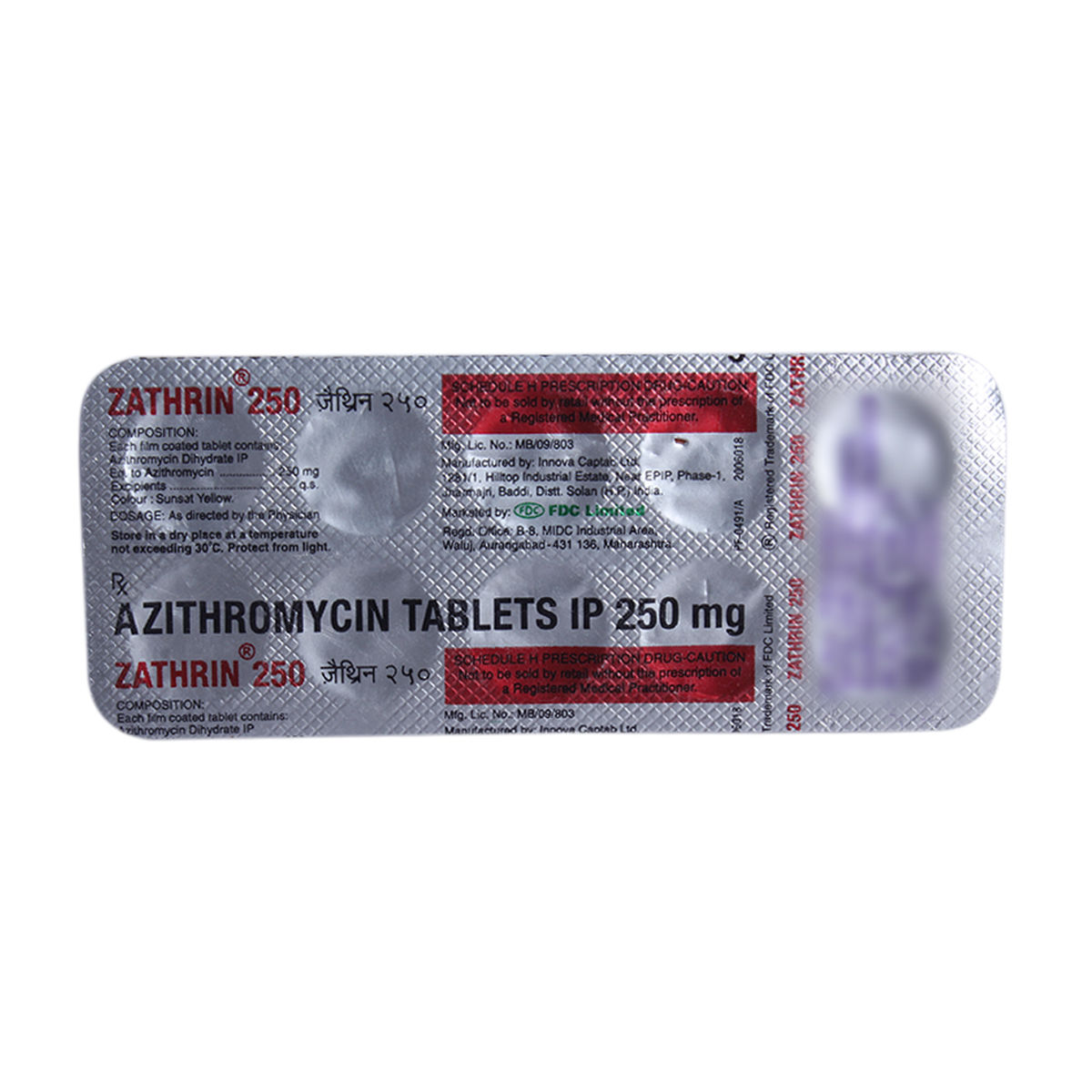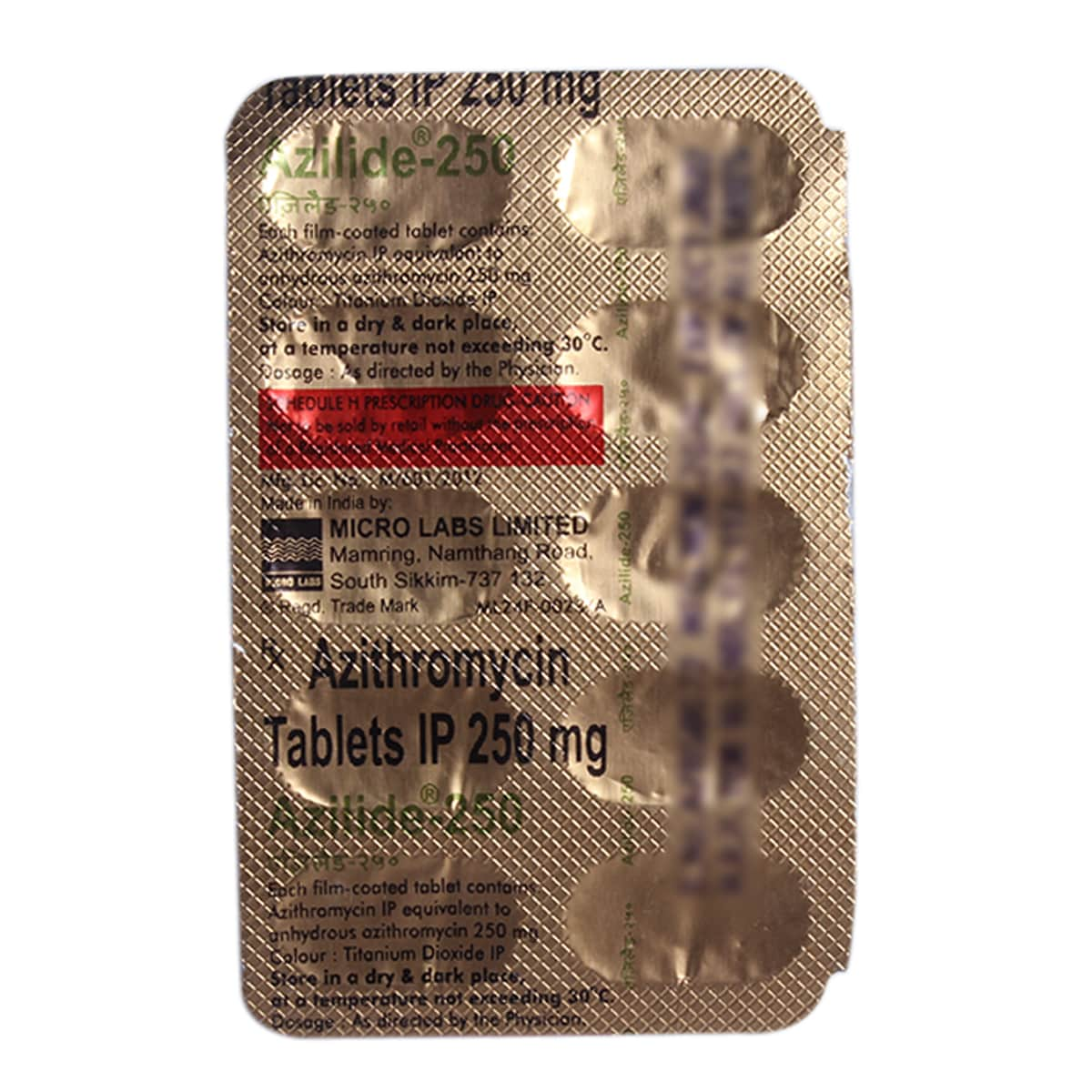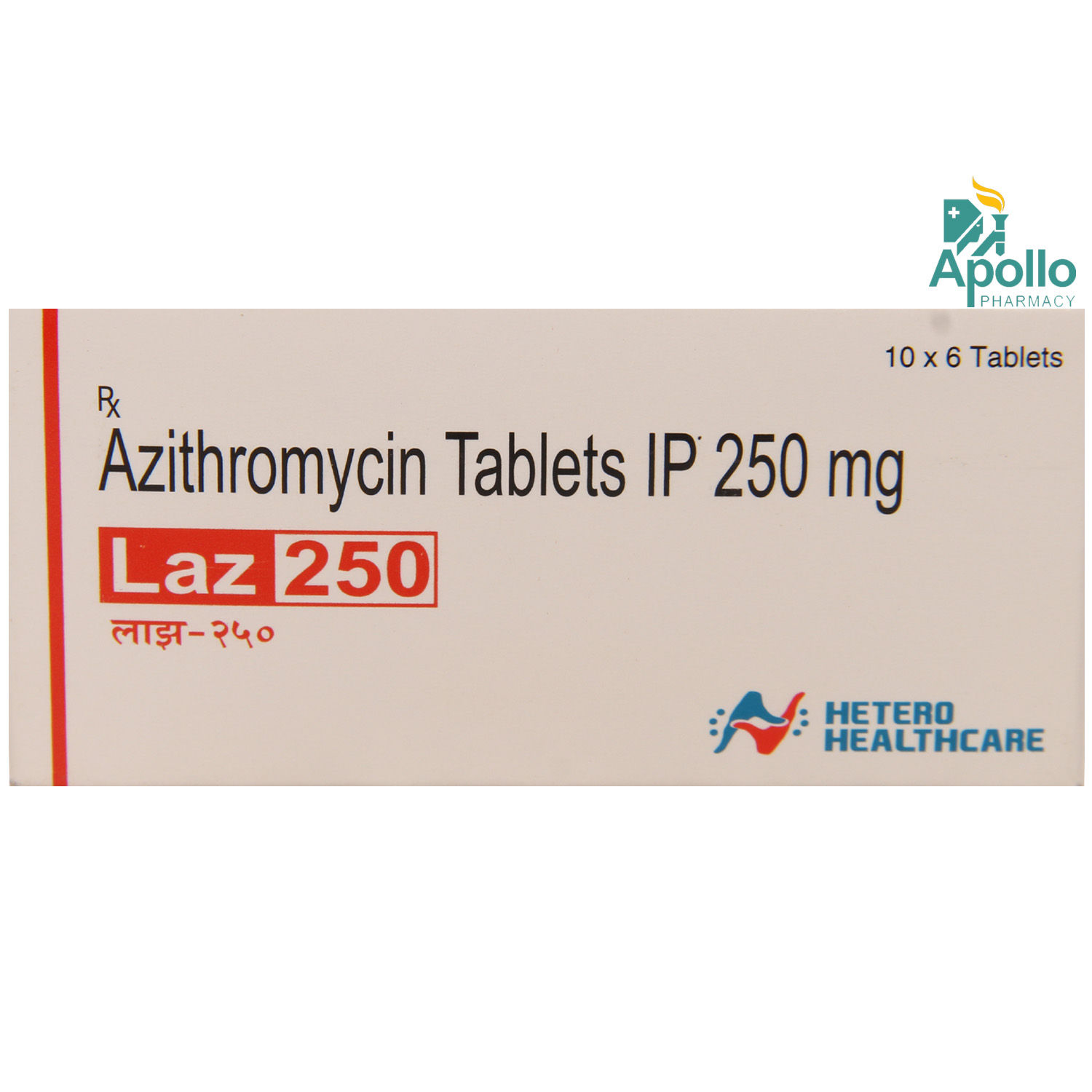एज़िथ्रल 250 मिलीग्राम डीटी टैबलेट 5

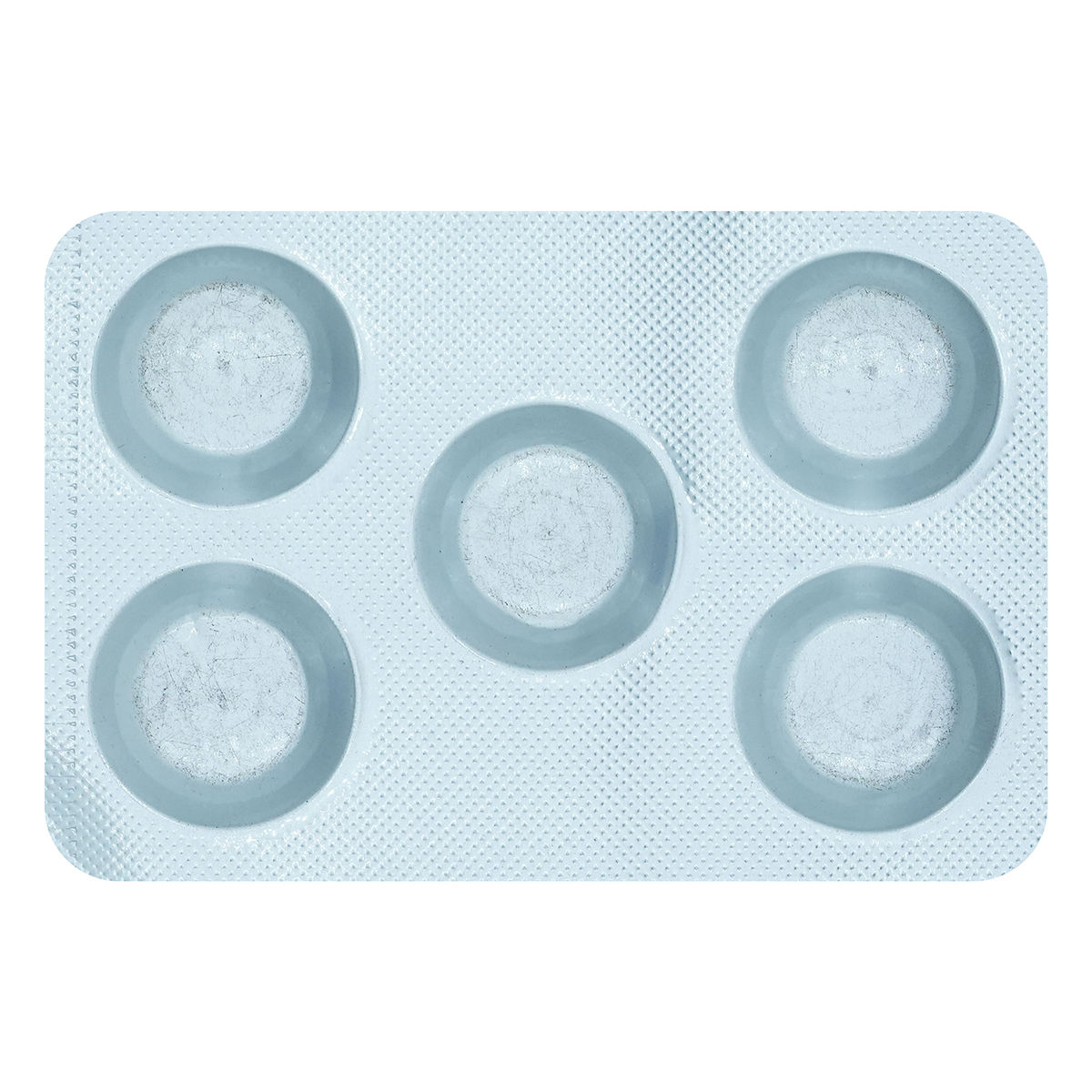
₹58.5*
MRP ₹65
10% off
₹55.25*
MRP ₹65
15% CB
₹9.75 cashback(15%)
Free Delivery
With Circle membership
(Inclusive of all Taxes)
This offer price is valid on orders above ₹800. Apply coupon PHARMA10/PHARMA18 (excluding restricted items)
Azithral 250 mg DT Tablet is used to treat several bacterial infections in children. It contains Azithromycin, which works by inhibiting the production of essential proteins that are necessary for bacteria to grow, multiply and increase in numbers. Thus, it prevents the growth of bacteria. Give this medication to your child as prescribed by the doctor. This medication may cause common side effects such as diarrhoea, vomiting, headache, nausea or stomach pain.
Know Your Delivery Time
Provide Delivery Location
 Prescription drug
Prescription drugWhats That

Secure Payment

India's Most Trusted Pharmacy

Genuine Products
- Inform Your Doctor: Notify your doctor immediately about your diarrhoea symptoms. This allows them to adjust your medication or provide guidance on managing side effects.
- Stay Hydrated: Drink plenty of fluids to replace lost water and electrolytes. Choose water, clear broth, and electrolyte-rich drinks. Avoid carbonated or caffeinated beverages to effectively rehydrate your body.
- Follow a Bland Diet: Eat easy-to-digest foods to help firm up your stool and settle your stomach. Try incorporating bananas, rice, applesauce, toast, plain crackers, and boiled vegetables into your diet.
- Avoid Trigger Foods: Steer clear of foods that can worsen diarrhoea, such as spicy, fatty, or greasy foods, high-fibre foods, and dairy products (especially if you're lactose intolerant).
- Practice Good Hygiene: Maintain good hygiene to prevent the spread of infection. To stay healthy, wash your hands frequently, clean and disinfect surfaces regularly, and avoid exchanging personal belongings with others.
- Take Anti-Diarrheal Medications: If your doctor advises, anti-diarrheal medications such as loperamide might help manage diarrhoea symptoms. Always follow your doctor's directions.
- Keep track of your diarrhoea symptoms. If they don't get better or worse or are accompanied by severe stomach pain, blood, or dehydration signs (like extreme thirst or dark urine), seek medical help.
- Inform Your Doctor: Notify your doctor immediately about your diarrhoea symptoms. This allows them to adjust your medication or provide guidance on managing side effects.
- Stay Hydrated: Drink plenty of fluids to replace lost water and electrolytes. Choose water, clear broth, and electrolyte-rich drinks. Avoid carbonated or caffeinated beverages to effectively rehydrate your body.
- Follow a Bland Diet: Eat easy-to-digest foods to help firm up your stool and settle your stomach. Try incorporating bananas, rice, applesauce, toast, plain crackers, and boiled vegetables into your diet.
- Avoid Trigger Foods: Steer clear of foods that can worsen diarrhoea, such as spicy, fatty, or greasy foods, high-fibre foods, and dairy products (especially if you're lactose intolerant).
- Practice Good Hygiene: Maintain good hygiene to prevent the spread of infection. To stay healthy, wash your hands frequently, clean and disinfect surfaces regularly, and avoid exchanging personal belongings with others.
- Take Anti-Diarrheal Medications: If your doctor advises, anti-diarrheal medications such as loperamide might help manage diarrhoea symptoms. Always follow your doctor's directions.
- Keep track of your diarrhoea symptoms. If they don't get better or worse or are accompanied by severe stomach pain, blood, or dehydration signs (like extreme thirst or dark urine), seek medical help.
- Drink water or other clear fluids.
- To prevent worsening of pain, limit intake of tea, coffee, or alcohol.
- Include bland foods like rice, toast, crackers, and rice in your diet.
- Avoid lying down immediately after eating as it may cause indigestion or heartburn.
- Avoid acidic and spicy food as it may cause indigestion.
- Consume more fruits, vegetables, and cruciferous foods like cabbage, kale, and broccoli.
- Reduced alcohol intake can enhance liver enzyme function.
- Oxidative stress can be managed by eating foods rich in antioxidants, such as vitamins C and E.
- Liver function tests regularly can help manage increased levels of AST.
- To improve liver health and aid in the removal of toxins, drink lots of water.
- Alcohol consumption should be reduced or stopped because it can raise ALT levels and impair liver function.
- Consume a well-rounded diet full of whole grains, fruits, and vegetables. Limit items that strain the liver, such as processed, fatty, or fried foods.
- You can monitor your ALT levels and make treatment modifications with the support of routine blood tests.
- Include lean proteins like skinless poultry and fish.
- Choose whole grains and low-fat dairy products.
- Limit intake of fat and oil.
- Stay hydrated by drinking plenty of water.
- Restrict heavy sugar intake.
- Avoid red meat, processed foods, and refined sugar.
- Eat more fruits and vegetables.
- Stay hydrated by drinking plenty of water.
- Low bicarbonate levels can lead to more acid buildup in your blood, so your doctor may administer sodium bicarbonate through an IV to help balance it.
- Drink lots of fluids or water to reduce acid load in your blood, and make sure your urine is clear or light yellow.
- Limit alcohol intake, as it can dehydrate you and increase acid buildup.
- If you are diabetic, keep your blood sugar levels in a healthy range.
- Eat high-alkaline foods, like fruits, nuts, legumes, and vegetables.
- Avoid foods that can cause your body to produce more acids, including eggs, meats, cheese, and grains.
Drug-Drug Interactions
Drug-Drug Interactions
Login/Sign Up
Co-administration of Azithral 250 mg DT Tablet with Ziprasidone can increase the risk of irregular heart rhythm.
How to manage the interaction:
Although there is an interaction between Ziprasidone and Azithral 250 mg DT Tablet but can be taken together if prescribed by a doctor. Contact a doctor immediately if you experience sudden dizziness, lightheadedness, fainting, shortness of breath. Do not discontinue any medications without consulting a doctor.
Taking Azithral 250 mg DT Tablet along with edoxaban may raise the blood levels of edoxaban. This increases the possibility of significant or serious bleeding problems.
How to manage the interaction:
Though administration of Azithral 250 mg DT Tablet alongside edoxaban can result in an interaction, it can be taken if a doctor has advised it. However, if you have any unusual bleeding or bruising, dizziness, lightheadedness, red or black, tarry stools, coughing up or vomiting fresh or dried blood that looks like coffee grounds, severe headache, and weakness, you should seek immediate medical attention. Do not discontinue any medications without consulting a doctor.
Taking Azithral 250 mg DT Tablet with bedaquiline may increase the risk of an abnormal heart rhythm.
How to manage the interaction:
Although using Azithral 250 mg DT Tablet alongside bedaquiline can result in an interaction, it can be taken if a doctor has advised it. However, if you experience sudden dizziness, lightheadedness, fainting, breathing difficulty, or rapid heartbeat, consult the doctor immediately. Do not stop any medications without a doctor's advice.
Taking Azithral 250 mg DT Tablet with vemurafenib increases the risk of an abnormal heart rhythm. If you're dealing with other cardiac illnesses, electrolyte imbalances (for example, magnesium or potassium loss likely due to serious or prolonged diarrhoea or vomiting), you may be at greater risk.
How to manage the interaction:
Although administration of Azithral 250 mg DT Tablet alongside vemurafenib can possibly result in an interaction, it can be taken if your doctor has advised it. However, if you experience sudden dizziness, lightheadedness, fainting, breathing difficulty, or rapid heartbeat, consult the doctor immediately. Do not stop any medications without a doctor's advice.
Taking Azithral 250 mg DT Tablet with gatifloxacin may increase the risk of an abnormal heart rhythm.
How to manage the interaction:
Though administration of Azithral 250 mg DT Tablet alongside gatifloxacin can result in an interaction, it can be taken if a doctor has advised it. However, if you experience sudden dizziness, lightheadedness, fainting, breathing difficulty, or rapid heartbeat, consult the doctor immediately. Do not stop any medications without a doctor's advice.
Taking Azithral 250 mg DT Tablet with pazopanib may increases the blood levels of pazopanib. This increases the risk of serious side effects.
How to manage the interaction:
Although there is an interaction between Azithral 250 mg DT Tablet and pazopanib, it can be taken if a doctor has advised it. However, consult a doctor if you experience fever, chills, joint pain or swelling, unusual bleeding or bruising, skin rash, itching, lack of appetite, nausea, vomiting, dark urine, and/or yellowing of the skin or eyes. Do not discontinue any medications without consulting a doctor.
Taking amisulpride with Azithral 250 mg DT Tablet increases the risk of an abnormal heart rhythm.
How to manage the interaction:
Though using amisulpride and Azithral 250 mg DT Tablet together can result in an interaction, it can be taken if a doctor has advised it. However, if you experience abrupt dizziness, lightheadedness, fainting, shortness of breath, or heart palpitations, get medical treatment immediately. Do not discontinue any medications without consulting doctor.
Taking Azithral 250 mg DT Tablet with cabozantinb may increase the risk of an abnormal heart rhythm.
How to manage the interaction:
Although using Azithral 250 mg DT Tablet alongside cabozantinb can result in an interaction, it can be taken if a doctor has advised it. However, if you experience sudden dizziness, lightheadedness, fainting, breathing difficulty, or rapid heartbeat, consult the doctor immediately. Do not stop any medications without a doctor's advice.
Taking Azithral 250 mg DT Tablet with citalopram may increase the risk of an abnormal heart rhythm.
How to manage the interaction:
Although using Azithral 250 mg DT Tablet alongside citalopram can result in an interaction, it can be taken if a doctor has advised it. However, if you experience sudden dizziness, lightheadedness, fainting, breathing difficulty, or rapid heartbeat, consult the doctor immediately. Do not stop any medications without a doctor's advice.
Taking Azithral 250 mg DT Tablet with Moxifloxacin increases the risk of an abnormal heart rhythm.
How to manage the interaction:
Although administration of Azithral 250 mg DT Tablet alongside Moxifloxacin can result in an interaction, it can be taken if a doctor has advised it. However, if you experience dizziness, breathing difficulty, or rapid heartbeat, consult the doctor immediately. Do not stop any medications without a doctor's advice.
Drug-Food Interactions
Drug-Food Interactions
Login/Sign Up
Product Substitutes

Have a query?
FAQs
Customers Also Bought
Disclaimer
Author Details
We provide you with authentic, trustworthy and relevant information














